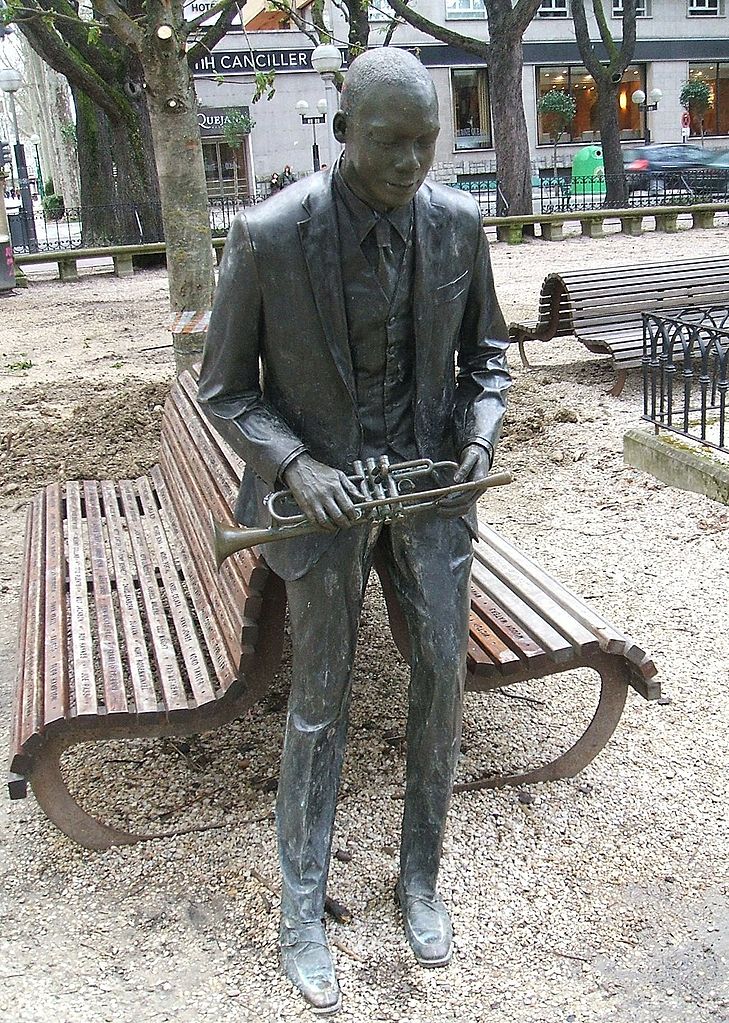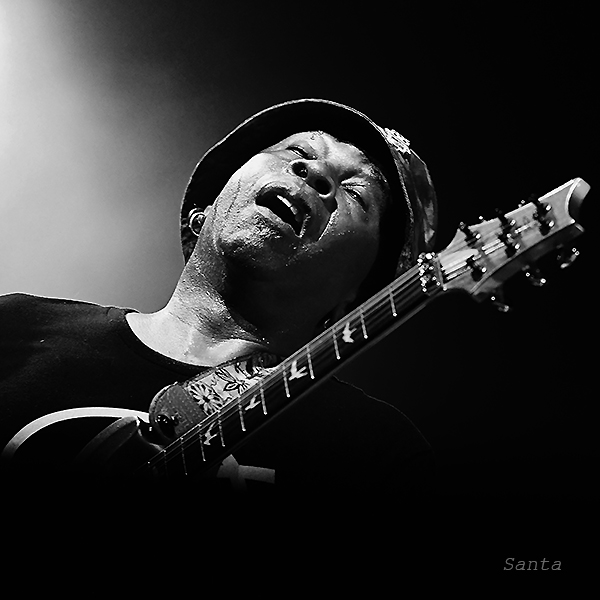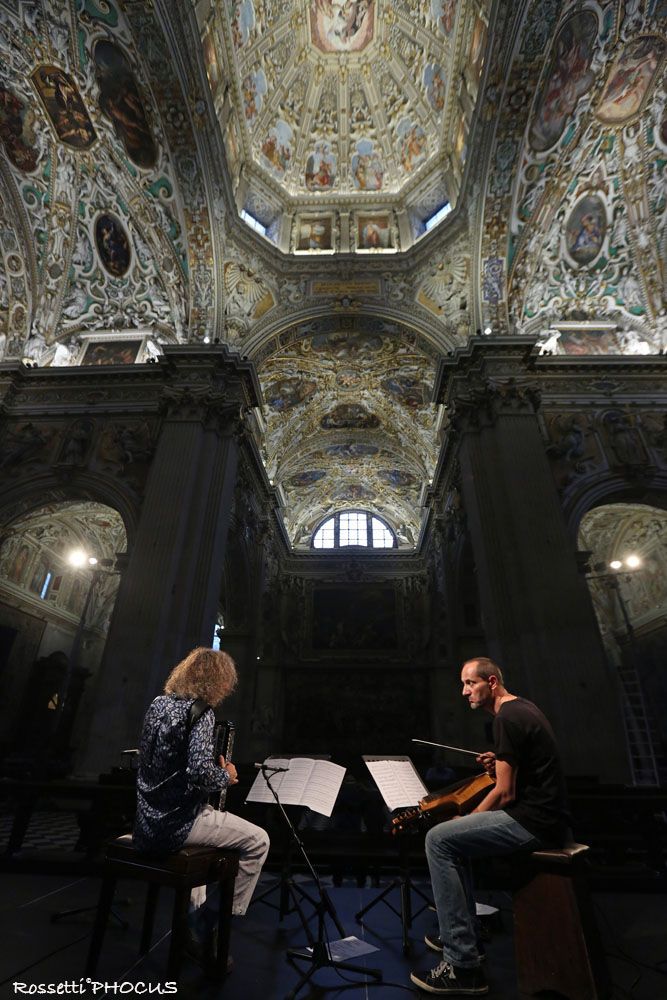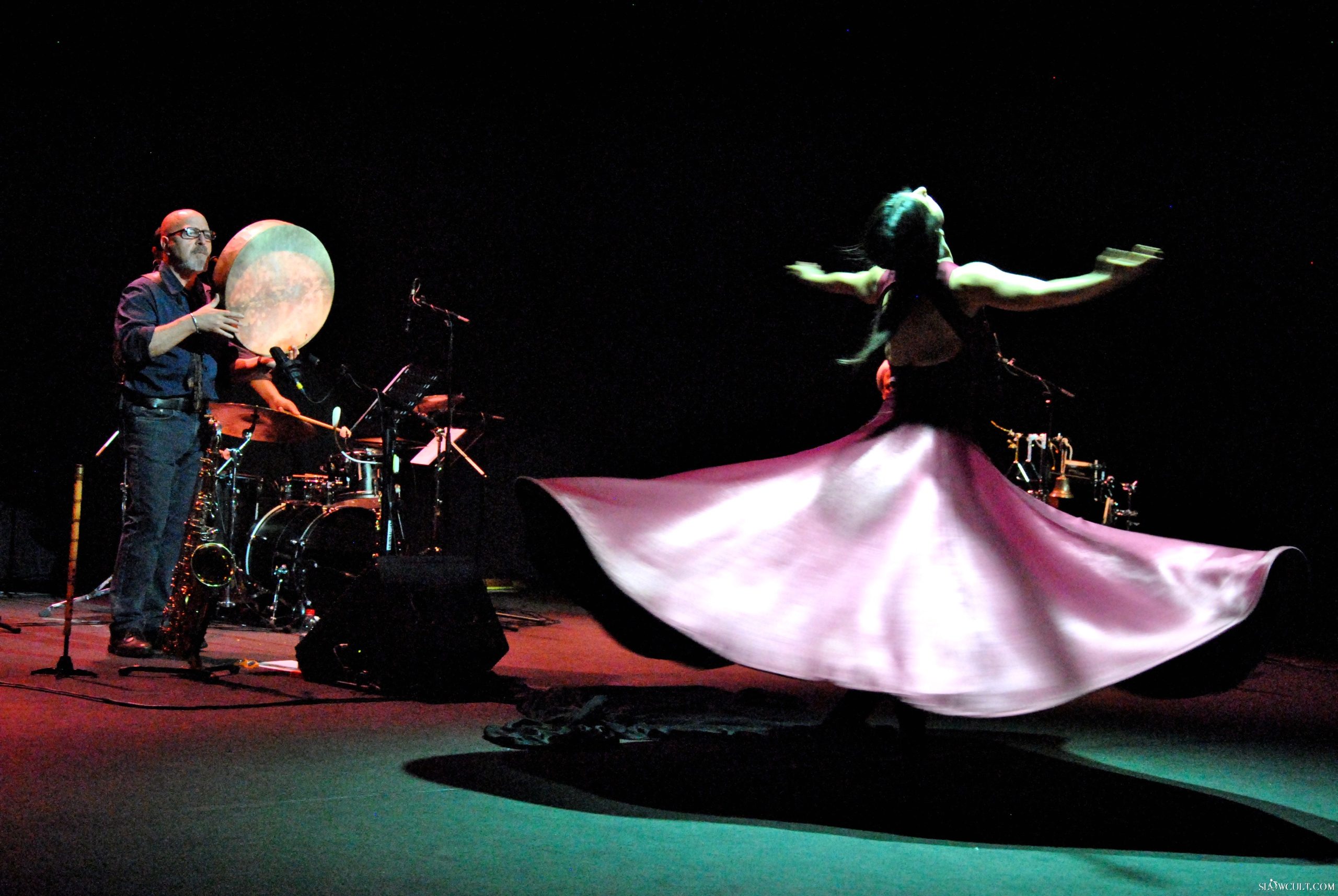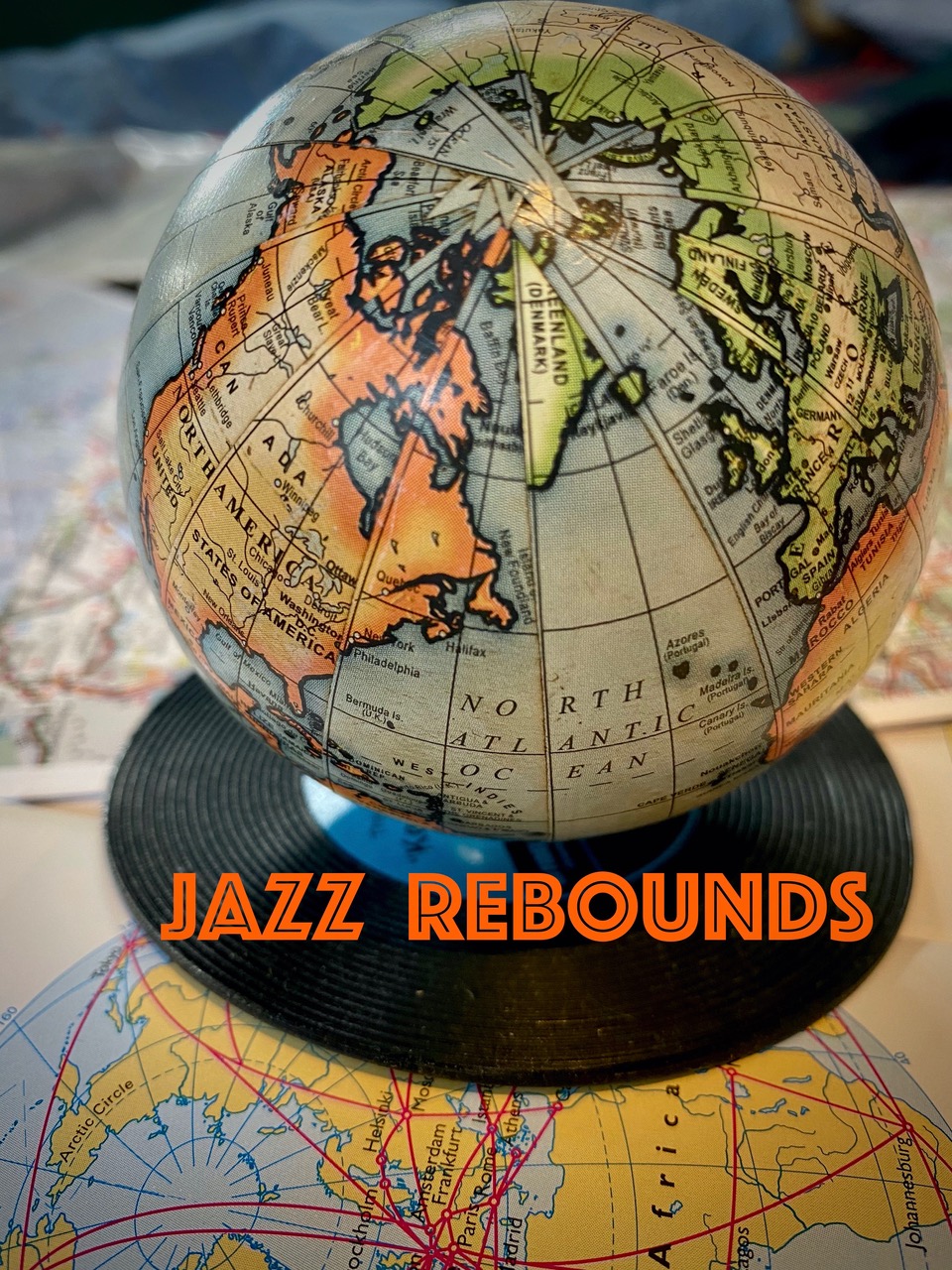North Rhine-Westphalia (NRW), bordering the Netherlands and Belgium, is the most populous state in Germany, home to 17.9 million people across cities including Cologne, Dortmund and Düsseldorf. Each year the region attracts musicians from around the world to perform roughly
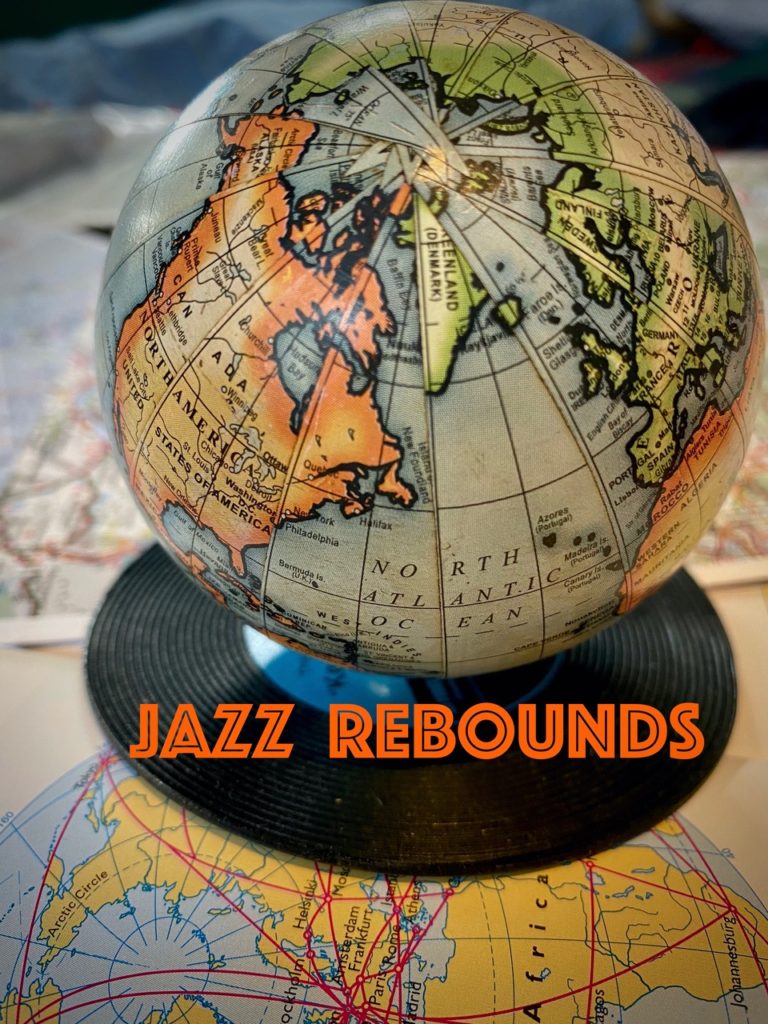
3,500 concerts on its 200 stages – including Germany’s most-visited jazz festival, the Düsseldorf Jazz Rally, which typically welcomes more than 250,000 visitors.
However, far-reaching government measures to contain the outbreak of Covid-19 have draped a blanket of silence over this loud and thriving jazz scene, and the resulting sonic vacuum has created serious challenges for musicians and event organizers.
Jazz guitarist Axel Fischbacher has been seeking solutions to those challenges all year. He organizes the Blue Monday series of concerts, which have taken place every two weeks at the now “temporarily closed” Blue Note jazz club in Hilden, a city of some 57,000.
“During the first lockdown at the start of the year, we accepted the rules in a spirit of solidarity and patience,” he says. “When the measures were lifted in September, we did everything we could to make our concerts safe – from limiting the audience to about one-third capacity, through to measuring body temperatures and collecting contact details for tracking. Even so, we only managed three concerts before the next lockdown hit. And now the mood has changed.”
He describes rising frustration with inconsistent and unpredictable rule changes that are making it difficult for venues to plan events.
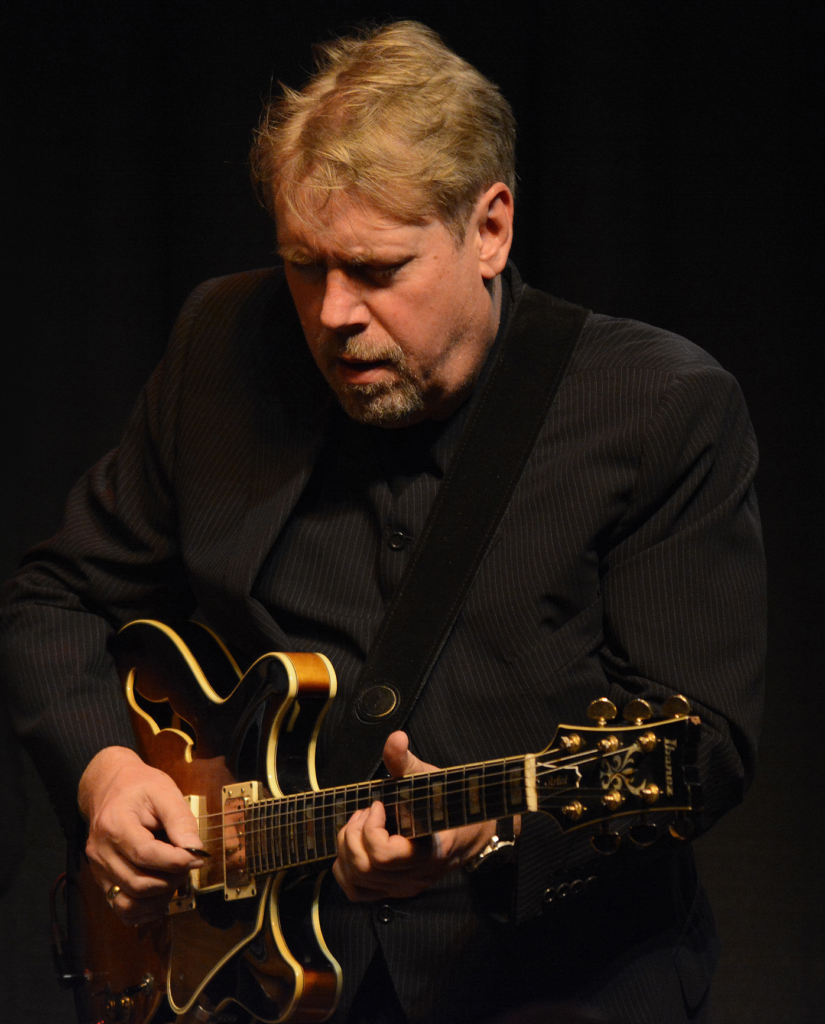
“I’ve been a musician and event organizer for nearly 50 years, and this is the first time my work has been forbidden,” he says. “People in the jazz scene here are taking the virus very seriously, of course, but home improvement stores and shopping malls are staying open, while places that provide culture are forced to close. It feels like shutting museums but keeping the gift shops open. I don’t like what that says about our politicians or our society.”
Every two weeks Fischbacher publishes videos on Facebook and YouTube to confirm the next concert cancellation and share an insider’s perspective into how Covid-19 is affecting the jazz scene in NRW. Recently, he launched a call-to-action for musicians to raise their voices and defend the contribution that jazz makes to society, especially during difficult times.
“Art and culture connect people, provoke conversation and make people think,” he says. “Those things are fundamental to our lives, but the decision-makers in Berlin don’t understand. That’s why we need to shout about it until they hear us.”
Many musicians in NRW and across Germany share this view. In late October, German rock star Udo Lindenberg posted strong criticism of the government’s treatment of the cultural sector. Similarly, a campaign with the slogan “Ohne Kunst und Kultur wird’s Still” (without art and culture, it is silent) has gained popularity on social media.
Christine Corvisier, a jazz saxophonist based in Cologne, has added a tag to her Facebook profile picture that simply states “Art Is Work.” In 2020, the type of work available for artists in NRW has undergone an unprecedented transformation.
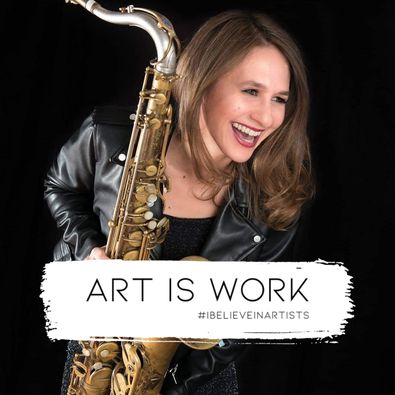
“I played a few corporate events and non-jazz gigs earlier this year, as well as some live streams during lockdowns,” she says. “I was surprised by how comfortable I felt when playing without an audience in the room. I went very deep into the music and explored some fresh ideas.
“However, the most important thing for me is to play with other musicians. That’s what makes jazz so special, but it’s hard to do that now, even for a rehearsal. People don’t feel comfortable. Especially with wind instruments.”
More than once, Corvisier has been replaced by a guitarist or pianist due to concerns about her saxophone spraying germs into the air. In September, she made a mask to cover the bell of her horn. While the science of this is questionable, the mask did make an impact. “Before I had the mask, people sitting near me were clearly nervous,” she says. “The mask made them more relaxed and event organizers were glad to have something to write on official forms. Me? I was just happy to play.”
Opportunities to play jazz have been hard to find this year and many projects have been cancelled. Fortunately, Corvisier had already scheduled a solo project before the outbreak of Covid-19. Under the theme “Chansons without Borders,” she reimagined songs from her native France.
“I wanted to interpret my musical heritage with my own musical language, which is jazz,” she says. “After the virus hit, the solo project was a precious opportunity to immerse myself in music. I need that in my life – and I think audiences do, too.”
Audiences in NRW have enjoyed access to a large and vibrant jazz scene for decades. Though Covid-19 has muted its loud presence, and musicians and event organizers are suffering as a result, it will be audiences who decide the future of this musical landscape. The postponed 25th annual Hilden Jazz Days (established in 1986) has been re-scheduled for June 1 – 6, and the Dusseldorf Rally is being promoted as occurring May 21-23.
Axel Fischbacher described the atmosphere at the three Blue Monday concerts held between lockdowns as among the best he has ever experienced. Christine Corvisier expressed her belief that fear and isolation simply cannot prevail, and that artists and audiences will naturally seek opportunities to connect through jazz. Much like when a soloist leaves a few beats of silence, jazz fans here are leaning forward, yearning for the next notes to play. Until then, the jazz musicians and event organizers in NRW will simply have to improvise.
Matty Bannond is a British jazz writer based in Germany, currently working on a novel with the working title Cutting Contest. Read his “fiction about jazz” at mattybannond.com.

